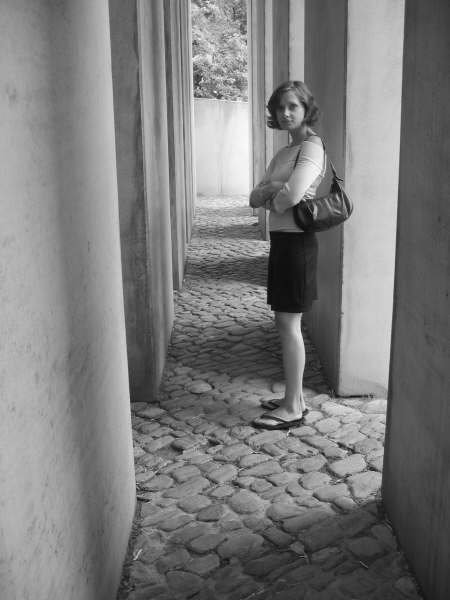
(I clearly lack the focus to continue my serial blog posts uninterrupted. This little foray into the uses of historical film is, however, but an intermission. The state of the ROM's permanent European exhibition is too terrible to remain without comment for much longer).
On 6 February, The Globe and Mail published a fascinating article on how first-time director Florian Henckel von Donnersmarck's new film Das Leben der Anderen (in English, The Lives of Others) challenges popular expressions of Ostalgie [1]. If you've visited Germany in recent years, or have kept an eye on current German culture, you'll likely have noticed this nostalgia for the former GDR. The 2003 film Good Bye Lenin! is a perfect example of the Ostalgie phenomenon, as are mountains of ampelman merchandise available in downtown Berlin tourist shops.
I believe that, far from being just cute or kitschy, Ostalgie can be genuinely dangerous. The Globe article expressed this important notion well: "(t)his warped sentimentality of life in the East has fuelled a 'conspiracy to forget' that was in genuine danger of rewriting the memory of Germany's history in the later half of the 20th century", it stated. Donnersmarck's film, it argued, challenges that "warped sentimentality", reminding its viewers that "life behind the Berlin Wall wasn't retro cool."
Judging by a description of its plot, Das Leben der Anderen recalls life in the GDR in a much more terrifying, honest and realistic way than do chubby ampelmen and nifty-looking trabants. Indeed, Donnersmarck told the Globe reporter that the growth of Ostalgie was his motivation for making a film that depicted some realities of the period. The film has been a great success: Donnersmarck commented on his amazement that respected intellectuals from the former GDR had announced publicly that the film had "opened a new chapter."
If Donnersmarck's film truly constitutes a significant shift in interpretation of the GDR past in film, it is, and will continue to be an invaluable resource for historians. Perhaps we can recall Marnie Hughes-Warringon's statement "historical films and written history are not forms of history; they are history" [2]. Historians can mine not only the film The Lives of Others, but also the contexts of its production and reception, for rich understandings of how former East Germans faced their nation's past in the early 21st century.
----------------------------------------------------------------------
[1]. Edward Wilkinson Latham, "Ostalgie: Do You Miss the Stasi Too?" The Globe and Mail 6 February 2007, Review section. Though the article was fantastic, I have to say that the limited access the Globe allows to this article turns me off completely. Last week, I was able to access the full text of the article, along with a scanned image of its original paper format, through an "archives" search on The Globe & Mail website. Now, to have access to the article for a month, the full-text will cost me upwards of $4.00. The license to reprint the article online for one month costs $250-, while a license to email the article to 6-20 friends costs $20-. It's a ridiculous, and frustrating situation. I have half a mind to post the full text on this blog, because I think it could be of interest to my fellow Public History students. If you're interested in the article, please email me and I'll send you a copy. I've just installed Zotero, however, and am still learning about its amazing powers - does anyone know if my 'snapshot' of the webpage that features the article will remain in my library even after my 30-day license to this article expires?
[2]. Marnie Hughes-Warrington, “Introduction” in History Goes to the Movies: Studying History on Film (London and New York: Routledge, 2007), 9.

6 comments:
The snapshot feature saves a copy to your harddrive. It will always be available.
I've been interested in seeing this film for a while. Coincidentally, I just listened to a podcast of an interview with the director on The Agenda. Here's the link, if you're interested (it's all one line, but it wouldn't let me post it like that):
http://www.tvo.org/podcasts/
theagenda/audio/
TAWSPFlorianHenckelvonDonnersmarck
011907.mp3
For the full text, try the writer's web site:
http://www.wilkinsonlatham.com/stasi.php
The Oscar-winning film “Das Leben der Anderen” was written and directed by Florian Henckel von Donnersmarck. The film is originally in German but English subtitles were added for international viewers.
Visit
Just came across the blog surfing, pretty decent art blog...
James
Ping Blog
Post a Comment